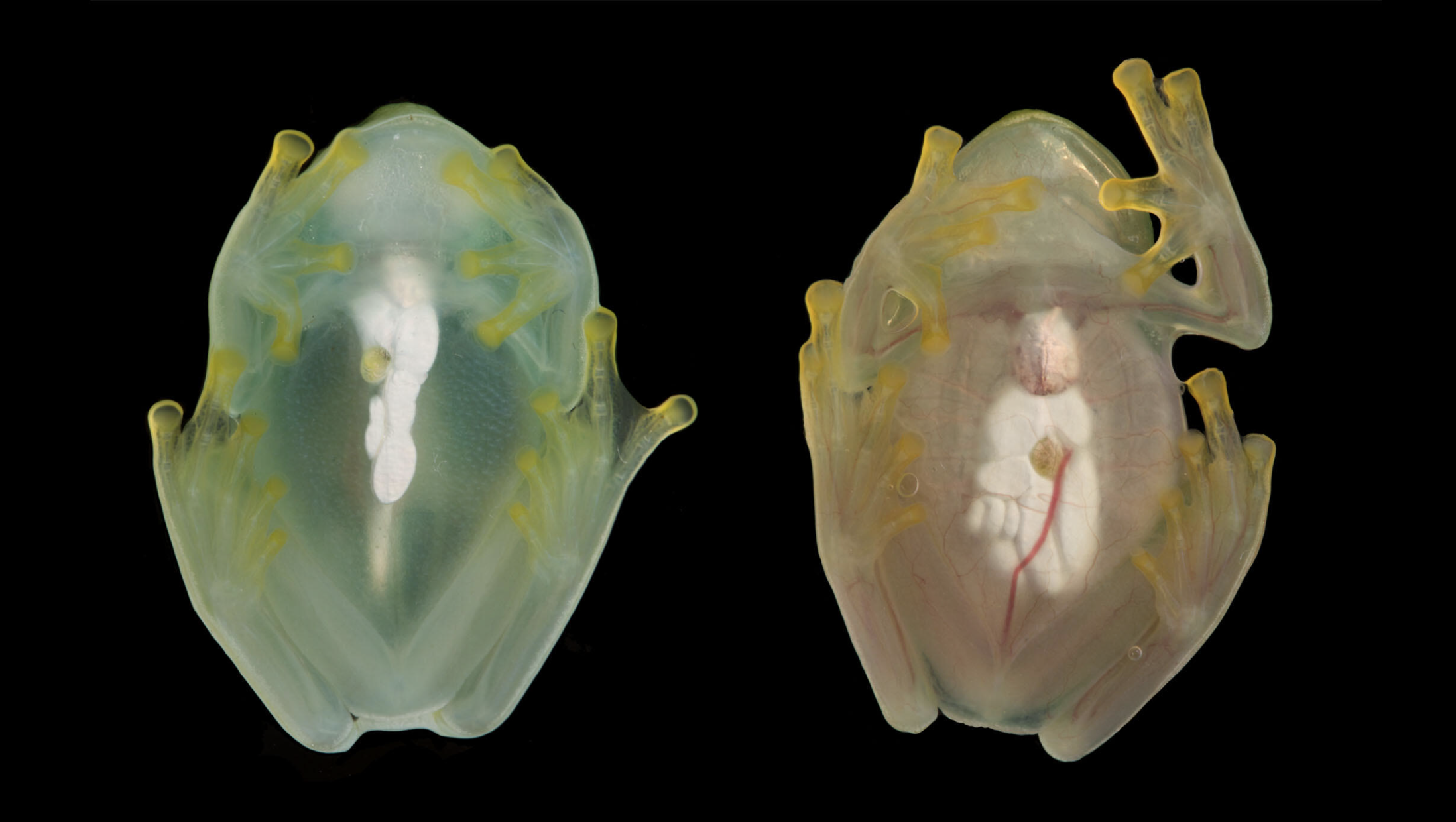AMNH Sci Cafe: Glass Frogs
For vertebrates, transparency is particularly difficult because red blood cells in the circulatory system interact with light. It’s especially rare in land animals—making glassfrogs, small nocturnal amphibians named for their see-through bellies—that much more extraordinary.
In this SciCafe, join Jesse Delia, Gerstner postdoctoral fellow in the Museum’s Department of Herpetology, to find out how glass frogs overcome this challenge by concealing most of their red blood cells from view—and how this incredible amphibian’s adaptation may have applications in human health and medicine.

Where?
Cullman Hall of the Universe, Central Park West, New York, NY, USA
When?
Dec 6
7:00 pm - 8:30 pm

 Back
Back

